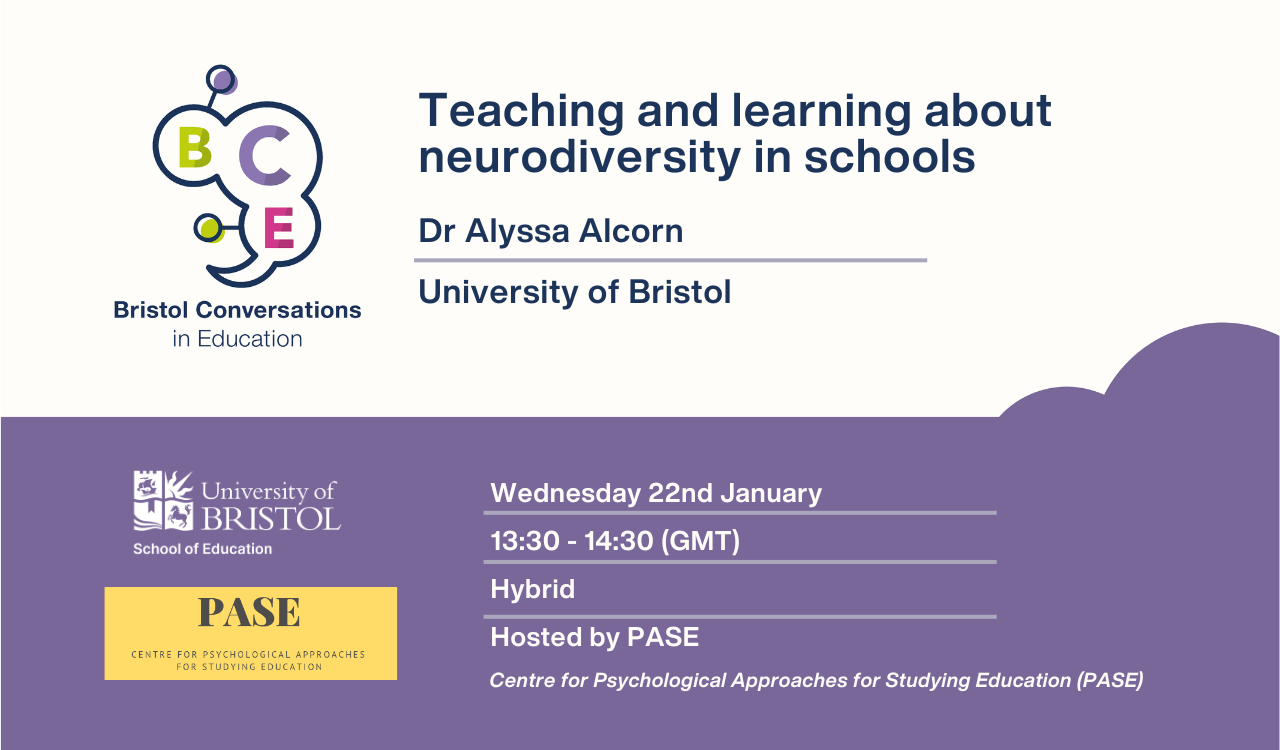
Event information
Teaching and learning about neurodiversity in schools
Wednesday 22nd January 2025, 13:30 - 14:30 (GMT)
This event is hosted by the Centre for Psychological Approaches for Studying Education (PASE)
Venue – Hybrid / School of Education, 35 Berkeley Square
Registration
Sign up for this event on the Eventbrite page.
About the event
This event is part of the School of Education's Bristol Conversations in Education research seminar series. These seminars are free and open to the public.
Speaker: Dr Alyssa Alcorn (Lecturer, School of Psychological Science, University of Bristol)
Teaching and learning about neurodiversity in schools: Addressing contributors to poor educational experiences for neurodivergent children
Neurodivergent children educated in mainstream classrooms too often face poor school experiences and poor outcomes compared to neurotypical peers. These may be caused, or exacerbated, by stigma and negative attitudes from classmates and staff.
One strategy to address these circumstances is to directly address knowledge gaps and negative attitudes by teaching about neurocognitive diversity. The Learning About Neurodiversity at School (LEANS) programme uses this strategy as the basis of a comprehensive, whole-class resource for introducing neurodiversity concepts to learners age 8-11 and discussing their daily-life implications in an age-appropriate and engaging way.
In this short talk, I will briefly describe how LEANS was developed through a fully-remote participatory design process with a neurodiverse group of experienced educators and researchers. I will also share findings from our feasibility study in Scottish schools, recently published in Neurodiversity. Finally, based on public reception and dissemination work around LEANS, I will highlight new data collection about the programme’s impacts and use, and community priorities for future applied research in this area.
Download LEANS from the project website (free, worldwide)
Check out the LEANS feasibility study (open access, published September 2024)
